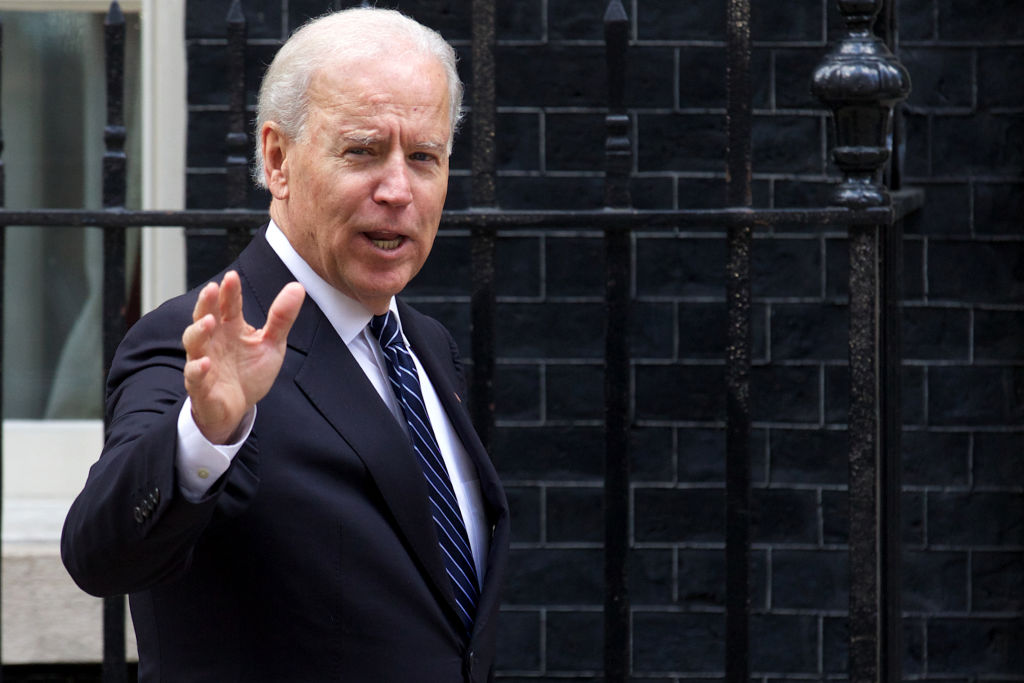Joe Biden is both an exceptionally lucky and unlucky politician. It would have been easy to write off the former vice president a few years ago. Yet here he is, the oldest person to assume the office, albeit becoming president at perhaps the country’s (and entire planet’s) darkest hour since World War II. So what can we really expect from him? And is his arrival really bad news for Brexit Britain?
Unlike Trump, Biden is less keen to talk up the ‘special relationship’ with Britain. But this might not be all bad news for Britain after Brexit. Biden has said little about Britain’s departure from the EU, but he has been clear in warning the UK about the prospect of a hard border between Ireland and Northern Ireland:
‘We worked too hard to get Ireland worked out… We’ve just got to keep the border open.’
This was, of course, before a Brexit deal was done though. And Biden, broadly speaking, should be happy with what was agreed between the UK and EU. That being said, a man more amenable to multilateralism and cooperation on issues like climate change is likely to find the EU a more natural partner than post-Brexit Britain. Yet Biden is not a reactionary politician: he is unlikely to rock the boat with the UK, even if there is to be no Reagan-Thatcher-esque chemistry between him and Boris Johnson.
But Britain should also be realistic about the prospect of a trade deal being reached between the UK and US. On the foreign policy front, Biden is going to have his hands full.
Israel is perhaps the most bipartisan issue in US foreign policy. Despite the hopes of some outer fringes of the Democratic party, don’t expect any serious walk-back by president Biden, even if there is some (very limited) rapprochement with Iran. One would expect to see continuity with the Gulf Arab states as well, especially given recent thawing of relations with Israel.
It is safe to assume a doubling-down on Russia, not least because that country is so heavily associated with the previous administration, while hostility to president Vladimir Putin is even stronger in the DNA of the Democratic party than in the mainstream of the GOP.
On China, while the hostility president Trump brought to the relationship will not come as naturally to president Biden, the latter will find it impossible to pursue any sort of détente with Beijing. It is worth remembering that vice president Harris is very much in touch with her Indian roots. Given that India is locked in a ‘cold war’ stalemate with China right now – and given the good relations built up between Delhi and Washington under president Barack Obama – this gives an added incentive for a tough stance with China.
This all being said, the first task of president Biden is to heal a deeply polarised country, a country very much aware of the potential for decline and one locked in economic misery (albeit a misery shared with virtually every other country on earth). For this reason, it is entirely possible that over the next couple of years at least, the Biden administration will be too focused on domestic matters to be too concerned about issues further afield. It would be the mother of all ironies if coronavirus made president Biden an accidental ‘America First’ leader.
All this means Boris Johnson should not be too ambitious about what kind of relationship he will have with Joe Biden. It helps that a previous Conservative government, as well as the Whitehall machinery, got to know Biden during the Obama administration. But president Biden does not feel like a natural Anglophile.
This administration will likely be very business-like in its dealings with London; perhaps though that will suit post-Brexit Britain as it seeks to rebuild its economy and navigate a new role in the world. It may even incentivise the UK to engage more with its Commonwealth allies, especially if Biden demonstrates the same unwillingness to unilaterally carry the Western alliance as his predecessor. After Trump, the ‘special relationship’ might not be so special, but that could just give Britain the push that it needs






Comments